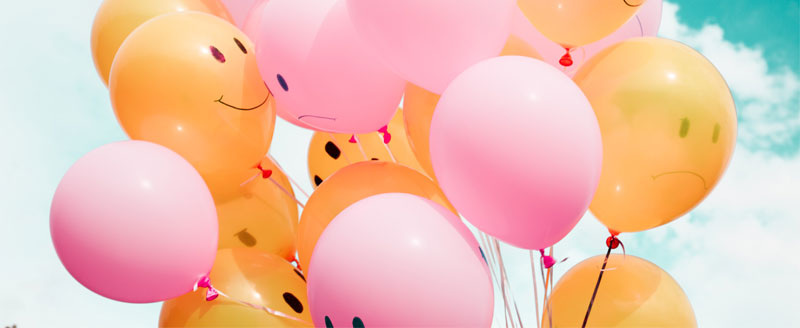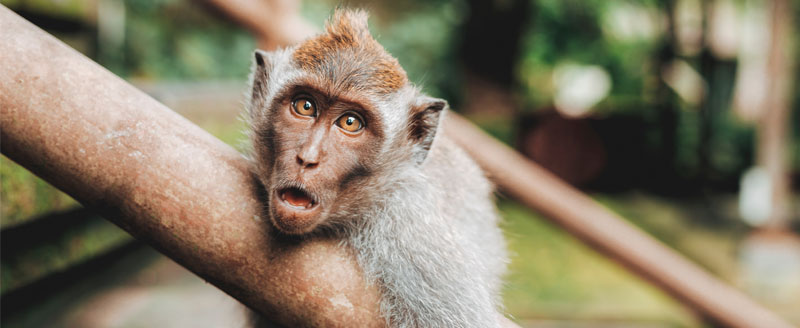Feelings—a superpower or a liability?

We all feel—that’s what makes us humans. But in cases, when feelings overdrive us, when they become the sole definition of our worth, of who we are, that’s also what makes us hurt.
The first question that I, at some point, had to ask myself was this: “Is feeling too much better than feeling nothing?” In other words, I wanted to know if the wide range of emotions is a liability to a human like myself, or a source of strength. It didn’t feel like a superpower, but at the same time, resigning myself to a life with no feelings at all felt ultimately wrong and senseless.
So what is this then, these feelings—a superpower or a liability?
At different points in life, it can be both. Our ability to feel can help us experience life fuller. The problem is that most of us have no idea what our feelings are and what they can possibly mean. That’s why some of us spend life doing everything we can to drive those feelings away, to avoid them at all costs. Because when we don’t understand something, we can’t find a way to live peacefully with it.
The dependence between our feelings and the world
How we feel is no less important than how, in our interpretation, the world (and by the world I mean here people that surround us, it can be our colleagues, family, friends, a random person in a grocery store, as well as society in general) responds to that. As well as how strong is the dependence between other people's perception of us and our feelings.
Have you ever felt unworthy? Misunderstood? Neglected? Unaccepted? Unwelcome? Like the fifth wheel? It hurts, doesn’t it? Words can hurt us but so can silence. And this is the exact dependence between the world (other people) and our feelings.
Where does it all start from?
It all starts from our infancy. That’s where we learn this correlation between how we feel and how the world responds to that as well as we learn the dependence of our feelins on the world’s response to them.
When we are born, our world, for many months, consists mostly of our mother, family, and sometimes those random people that come to see us, play with us, and adore our baby cuteness. But for the most part, it’s just us and our mother who takes care of us and is responsible for us the most.
From her we learn not only about the world (the first several months, she is our whole world) but also about ourselves and our needs. And this relationship between us, as a baby, and our mother is a mini version, the first version, of how we feel and how we will interpret the world’s response to it.
Imagine looking into a mirror—that’s the role our mother plays to us the first year of our life. When we are upset and cry, mommy makes a sad face and rushes to us to take care of our needs. Or when we are happy, mommy smiles and tickles us, hugs, kisses or plays with us. These are the examples of a healthy relationship between a mother and a baby. The mirror in this case, reflects feelings correctly and responds to them adequately as well.
But what if our mother is chronically depressed, apathetic, or emotionally distant? When we are upset and cry, what if our mother doesn’t come to tend to our needs? This would be an incorrect mirroring of our emotions and is going to cause chaos in our understanding of ourselves and our feelings in future.
A quick disclaimer here!
What I have just described is just a drop in the ocean. We shouldn’t forget such factors as how healthy the baby is or in which family the baby is growing. The only reason why I decided to start from here is because this will help us to have a basic understanding of what I’m about to say further in this article.
There is so much more to this and each of us is different, in terms of our biological and psychological health, so let’s not forget about that too.
What happens when we grow up?
Things don’t really change. The only thing that does change is that now we are grown-up, and we are alone with our feelings (the way we were taught to interpret them), our needs, and the world.
And there is a key in it.
When we put ourselves out into the world and the world’s response (it can be a hateful comment, a smirk, a stare, or even silence, or a joke) triggers a hurtful feeling within us, it means there is a need that hasn’t been fulfilled. The same goes with feeling misunderstood, unwelcome, or ignored. And our job is to understand exactly what this need is.
This is why rejections can hurt so much that after one failure, some of us can’t bring themselves to ever try again. Because our need to be accepted is so big and too unbearable. In moments like this we tend to shut down and shield ourselves from the ability to feel anything.
And this is basically a repeating scenario that we learned at some point in our life (more likely when we were a baby), where our need of being accepted has never been fulfilled. So we get stuck in this scenario and keep living through it over and over again.
How to break this vicious circle?
Sometimes what you feel isn’t about who you are but about what you need.
Allow your feelings to be. If it really hurts, then it most likely is a triggered feeling, which means it’s an indication of some of your unfulfilled needs. And unfulfilled needs are the reason why so many of us don’t feel whole.
Because being whole starts from knowing how to tend to your needs by yourself.
If you feel like no one likes you, it’s not a sign that you should try harder and make them like you by being who they want you to be. It means that you need to stop for a second, and look within yourself, and figure out how to like yourself first, how to tend to your need to be liked without it being dependent on whether others like you or not.
How you feel matters, and so do your needs. From now on, I invite you to look at the feelings that hurt, especially the ones triggered by what someone else said or not said, did or not did, as at a sign that some of your needs haven’t yet been fulfilled and focus on figuring out what exactly are those needs and how you can fulfill them by yourself.
This is a great start to growing up, becoming whole, and finding your own way to live in this world and with the people, surrounding you, in harmony and peace.
So what are our feelings - a superpower or a liability?
Roughly, I would say there are two kinds of feelings. Triggered feelings and our ability, as human beings, to feel, to empathize, to connect to the world through the range of our emotions, to experience life. And though triggered feelings—the feelings that arise in response to our unfulfilled needs, may be a liability, because they don’t allow us to be ourselves, or to live freely in our own bodies, or accept life as it is and find a way to be happy and satisfied in it, our ability to feel is definitely a superpower.




